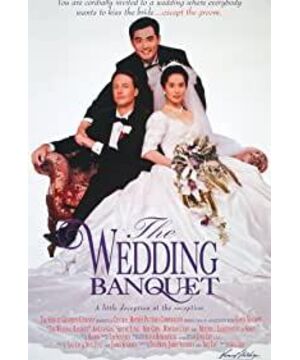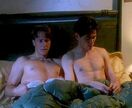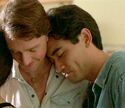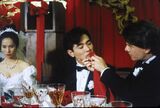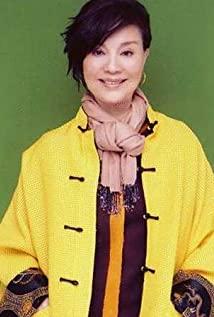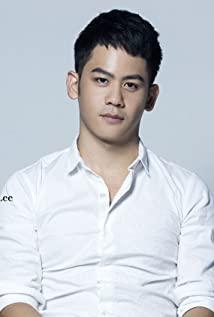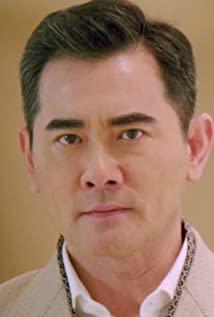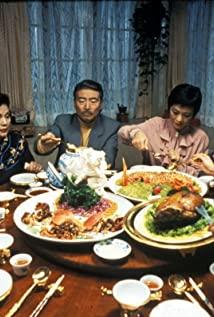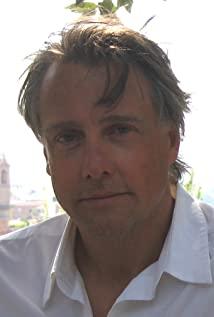Ang Lee's works are unique and creative in their selection of materials and their narrative angles, full of fresh and unraveling modern comedy. From Pushing Hands (1991), The Wedding Banquet (1993) to Eating and Drinking Men and Women (1994), they form a family trilogy with the theme of a "modern variation" of Chinese-style ethical relations. It was found that the core characters in the three films at the focus of cultural reference are precisely the father played by Lang Xiong, which has some intriguing symbolic meaning. Although in the three stories, the three fathers are either placed in the foreground of the narrative or in the background of the narrative, their social identities and character traits are also far different, or they are good at boxing and stubborn ("Push Hand"). ), or good at calligraphy and generous in nature ("The Wedding Banquet"), or good at food and quietly ushered in the "second spring" ("Diet Men and Women"), but their psychological connotations as cultural roles and their realistic situation are generally In common, they not only represent the long-standing tradition of Chinese-style patriarchy, but at the same time, they are also infiltrated with all kinds of irony and ridicule of the "Chinese-style patriarchy" from the perspective of the collision between the two cultures of the East and the West. What is presented here is a kind of life style with a strong atmosphere of modern urban genre paintings, reflecting a tepid, harmonious and harmonious cultural interpretation.
"The Wedding Banquet" adopts a rather tolerant narrative perspective, with a humorous tone that is rarely seen in Chinese films, intricately connects the Western-style gay stories with the Eastern-style human relations and justice, and spreads out layer by layer, extending a richer story. humanistic meaning. On the axis of the narrative, Gao Weitong, who successfully entered the mainstream American society as a Manhattan real estate agent, wandered between homosexuality and heterosexuality and was repeatedly caught in embarrassing comedy situations, showing a split personality. As the privacy of his "sexual orientation", he became a same-sex couple with Simon, a young American doctor, and they have lived together for nearly five years. Their moral values and values are neither modern nor trendy. However, due to the constraints of Chinese ethics and cultural and psychological accumulation, he has never dared to disclose this relationship to his parents, and he can only wear a mask to make a living. There is a saying in Chinese ethics that "there are three kinds of unfilial piety, and no successor is great". When his parents frequently urged him to get married as soon as possible in the name of continuing the incense, he was helpless, so he and Simon jointly planned a "fake phoenix and virtual phoenix". Marriage farce, originally just wanted to hide their ears and steal the bells and prevaricate the parents far away in Taipei, but the two old people actually traveled across the ocean and flew to the United States to preside over a decent and grand wedding for their son. Gao Weitong was in a predicament out of consideration for filial piety. From then on, it was like a "snowball", getting deeper and deeper and irreversible, until the wedding banquet, the wedding candles, the pregnancy of the "bride-to-be", and the quarrel between the same-sex couples. Unstoppable in one go. The comedy that is deeply buried in this narrative axis stems from the protagonist Gao Weitong who always dances with a moral mask of self-disguise as if he can't help himself.
As far as the deep structure of the artistic image is concerned, the contradiction between Gao Weitong and his father, who is the embodiment of traditional Chinese concepts, has become the internal driving force of the narrative of the whole play. In this contradictory confrontation, the film gives a vivid portrayal of the comedy image of Gao's father and son's mutual constraints. In fact, since Father Gao excitedly set foot in the United States, which has already entered the hot land of the "post-industrial" cultural form, no matter whether his son went to the city government to perform a notarized marriage ceremony in accordance with Western customs, or whether he was later For the lively and lively wedding celebrations in Chinese restaurants "without losing the face of the Chinese people", whether after learning of his son's true love for homosexuality and facing the "bride-to-be" fake drama and getting pregnant, and then almost going to have an abortion, etc. Love affairs, the challenges and pressures this "Chinese father" bears in his heart are far more embarrassing and embarrassing than what his son has experienced. The retired teacher who once lived in the sea was finally exhausted and was admitted to the hospital with a mild stroke. After recovering from the illness, he had to put on a moral mask that was neither new nor old, and used some modern enlightenment to cover up the traditional morality. Weakly (by giving Simon a birthday present alone, he unofficially accepted the son's same-sex couple, but dared not disclose it to his wife, children, and legally recognized daughter-in-law). Gao's father's compromise with reality is not only a kind of helplessness, but also a life strategy for him to maintain the decency of this Chinese-style family, get it out of crisis and find a new balance. Although Father Gao has always been a character in the background of the film's narrative, it is he who is in control of the entire narrative process, symbolizing a potential, invisible, and irresistible suppression of Chinese ethical traditions. In the narrative space of New York, the shadow of the spirit of this Chinese father can be said to be omnipresent. Whether it is Taipei's "Overseas Telephone" or Gao's mother's tape "Letter", the shadow of his father's authority is etched. The girl next door, Mao Mei, whom Gao’s mother had taken care of, once told Gao Weitong the story of Gao’s father’s heart attack. The old man “couldn’t take this breath” because he had not yet hugged his grandson. The old man's aged life would not let go easily. This "unwilling to breathe" little story may be the inherent opportunity to kink the Gao family, a Chinese father and son, into the same comedy predicament. How to break free and get out of this predicament, the father and the son have their own ways of coping. What really surprised and ironic to the audience was that Father Gao met his subordinate who was driving for him in "China Town", and now he has become the owner of a Chinese restaurant. I was able to make up for a prosperous wedding banquet for my son's life-long event; it was precisely the night of the bridal chamber after the wedding banquet. , the bridegroom and the "bride-to-be" are really fake. This puts the father in a deeper predicament. The comedy plot takes a "sudden turn". After learning the truth about his son's homosexuality and the pregnancy of his "daughter-in-law", the father kept silent at first, then fell ill and was hospitalized. The "bride"—one is the "handsome girl" Weiwei from mainland China, and the other is the "handsome man" Simon from the United States, that is, a same-sex partner) gave tolerant acceptance. Thus ushered in the comedy happy ending. How the father thinks while he is sick, perhaps the author deliberately "sells him out", or it may be an omission in the film's artistic description, but as a "play", the most sensational part of the whole play is precisely the unique secret method of the father. Identifying with this "three-in-one" family (a new baby will be born soon) means making concessions and compromises to Western-style gay culture in the name of "Chinese patriarchy". People are very interested to find that there are competitions and games of the signifier and the signified symbol in the play, which both subvert each other and then merge with each other. The meaning of the signifier "family" not only shakes the cornerstone of traditional Chinese ethics, but also reconciles the different cultural bases between homosexuality and heterosexuality. Therefore, the film "The Wedding Banquet" is in a comedy and farce style. In the cultural atmosphere, it is skillfully woven into a modern myth of the warm blend of Eastern and Western cultures.
The setting of the five main characters in "The Wedding Banquet" centered on the confrontation between the Gao family's father and his son shows Ang Lee's creativity. It seems to be a piano and string quintet. Here, there are two generations of people There are also difficulties in communication between men and women, various barriers and embarrassments in the choice of sex and love between men and women, as well as Chinese (including Taiwan and mainland China) and Americans who are in different cultural concepts and realities in the East and the West. Many obstacles to communication between the two, and with the help of the topic of homosexuality, the profound and subtle connotations of human nature and human feelings are excavated layer by layer. Two of the female characters, although they are in a foil position in the overall artistic narrative, are quite Chinese and appealing. Especially the role of mother played by Gui Yalei, she cannot accept the fact that her son is a homosexual in terms of cultural mentality, but she bears the "good wife and good mother" who mediates between the confrontation between father and son duty of. For the "bride-to-be" Weiwei, she loves her even more, and many of the detailed descriptions are unique.
"The Wedding Banquet" was filmed by Ang Lee with funds from Taiwan's "China Film Company", but it was shot in the form of an American independent production. He sets the story of a Chinese family against the backdrop of a prosperous modern city like New York in the United States, and highlights the comedy situation formed by the collision between the two cultures of the East and the West. "Situation Comedy" is quite similar in purpose, but it is also an authentic Chinese-style sitcom.
View more about The Wedding Banquet reviews


